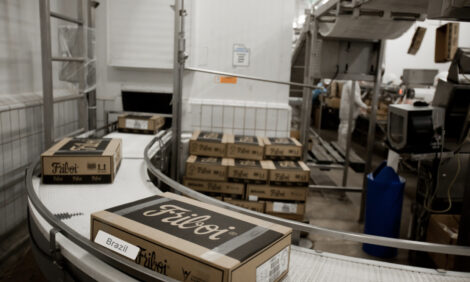



Demand for Provenance and Traceability Boosts UK, Irish Prime Cattle Prices
UK - Current farmgate prices for prime cattle continue to benefit producers in the UK and Ireland, with prices advancing almost 10 per cent since the start of the year.According to Stuart Ashworth, Head of Economic Services, Quality Meat Scotland, this may be due to several retailers, and ready meal manufacturers, making public commitments to only supply UK and Irish beef in their UK outlets, at a time when supplies are tight.
“A tightness of cattle supplies has characterised the UK and EU beef market over at least the past six months,” said Mr Ashworth.
“Over the first four months of the year, the UK prime cattle kill fell by 2.7 per cent, and, because those animals were generally killed at lighter weights, the volume of prime beef produced fell by 4.6 per cent.”
Although the number of cows and mature bulls slaughtered increased by 6 per cent, this was insufficient to offset the decline in prime cattle. Total UK beef production fell 3.2 per cent over the first four months of the year when compared to last year.
“Across the European Union, beef production over the first quarter of 2013 fell 5 per cent when compared to the same period last year,” commented Mr Ashworth. “Only Ireland, of the major beef producing countries of Europe, produced more beef than a year ago.”
However, it is clear that tight supplies have had different impacts on producer prices across the EU as a consequence of differing demand-side pressures.
“The average farmgate price for prime cattle across Europe has fallen 2 per cent over the past eight weeks and by a similar amount since the start of the year,” Mr Ashworth said.
“Major beef producing countries, for example Germany, Italy and Spain have seen producer prices fall by a larger amount. In these countries, the market signal is one of a reduced supply, meeting reduced demand, and prices falling.”
However, France and the Netherlands have seen a modest price improvement while Irish farmers have seen prices advance by almost 10 per cent since the start of the year.
“It is important to determine why these countries, along with the UK, are behaving differently,” said Mr Ashworth.
“While tightness of supply could be a significant contributor to the increase in the Scottish and French farmgate prices, the same cannot be said for Ireland.”
“Ireland’s beef production has increased by 5 per cent at the same time as a 10 per cent increase in price. This indicates that another factor is influencing prices.”
With a greater commitment to UK and Irish supplies, retailers and processors now have to address the consequences of the UK being only 85 per cent self-sufficient in beef.
Similarly it seems that French consumers are paying greater attention to beef provenance after the revelations that horsemeat had been used in some beef-based ready meals produced in France.
“It appears that despite an economic downturn which is clearly impacting on beef demand in Germany, Italy and Spain, concerns over beef provenance and traceability appears to be weighing heavily on the market in France, Ireland and Scotland,” added Mr Ashworth.
TheCattleSite News Desk


